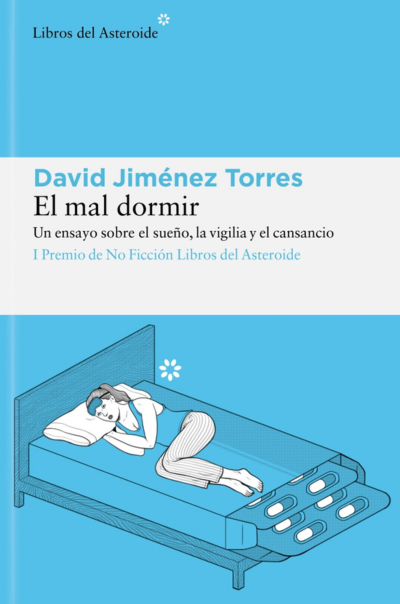We are, without a doubt, facing a historic moment. The coronavirus not only infected people, but practically all of the social spheres: politics, the economy, and even our own psychology. We have come to realise that we are not as invincible as we thought, and that nature has more than enough power to curtail one of our fundamental freedoms: mobility. Something unprecedented in the recent history of our country. A «simple» virus, which is not even living, can not only collapse the health of a developed country, but also cause a serious recession. We are therefore confined, but perhaps the worst is yet to come, in the form of a more lasting event that would affect many more people: an economic crisis.
It is still too early to predict with maximum reliability how this will unravel, although we can affirm that it will differ from that of 2008, as this is not a financial crisis or does not affect the payment system. We are experiencing a real shock, especially in terms of supply —due to lack of supplies— and demand (we only go out to buy essentials). However, the «crack of 2020» has in common with the Great Recession an important aspect: uncertainty. This is perhaps the most important piece of our puzzle. Now, more than ever, institutions need to bring confidence and tranquillity to a hysterical and paralysed market in the face of ignorance on what the future holds. Beyond the conjunctural and short-term measures, which will be, without an iota of doubt, decisive and basic, if we want to get out of this mess as soon as possible, we need the Government to be transparent, forward-looking and provide credibility is a sine qua non condition for recovery. And perhaps this is the most complicated part. We do not tire of verifying, day by day, that the current two-headed Executive systematically lies or hides from us, is absorbed in constant internal disputes and, even worse, has prioritised his partisan and ideological interests in the fight against a virus that it has become uncontrolled, after previously ignoring all the indications given by the WHO and other organisms. Thus, on March 8th, the Government encouraged thousands of people to congregate in demonstrations and, five days later, we were no longer able to leave our homes under risk of a fine. Now, the virus is out of control and Pedro Sánchez, overwhelmed. And all because of his negligence. For this reason, beyond quantitative —economic— measures, it is essential that the Government takes qualitative measures seriously, namely, improving the expectations of economic agents (instilling certainty) and full transparency, so that they can take the right decisions and investments do not fade.
If the policies applied are correct, the economic crisis will be temporary, but requires drastic measures in the short term
If the economic policies that are applied are correct and, as far as possible, confidence in the institutions recovers, everything seems to indicate that the economic and stock market crisis will present a graph in the form of a vee. That is, the fall, as we are verifying, will be —is already being— abrupt, but the recovery will take place in the same way. Thus, and although it is still too early to affirm it, everything indicates that it will be a conjunctural crisis, that it will not become structural, and that it will require measures as short-term as drastic. The factors that will influence the impact that the coronavirus has on the economy are as follows: 1) the degree to which the crisis reaches, 2) its duration, 3) the time that the adopted mechanisms remain in force, 4) its intensity and 5) the destruction of the productive fabric that is caused.
Economic measures approved by Pedro Sánchez
The Prime Minister has released a battery of economic policies of which, despite not yet being articulated or knowing how they will materialise, we can do a first analysis. They start from the mobilisation of 200,000 million euros (approximately 20 percent of the Spanish GDP), of which 117,000 million come from the public sector and the rest from the private. They will be used as follows:
- A line of guarantees to companies of up to 100,000 million. The State will become the guarantor of the operations.
- Additional guarantees of 2,000 million for exporting companies, with agile mechanisms.
- Measures to facilitate the restructuring of credits to agricultural exports affected by drought.
- 30 million to vaccine research.
- 600 million for the provision of basic services to autonomous communities and local authorities and, thus, guarantee basic supplies.
- Moratorium on mortgage payments in situations of special vulnerability.
- Armouring of Spanish companies so that those from outside the European Union cannot take control of it, taking advantage of their stock market failures.
- ERTE (temporary layoffs) flexibility: those considered as force majeure will be managed quickly. In addition, companies that, instead of firing workers, take advantage of them, will be exempt from paying contributions.
- The access of the self-employed to the benefit for cessation of activity will be made more flexible and those who go unemployed will be exempt from paying contributions.
All that glitters is not gold
Despite the fact that these measures were celebrated very positively by the Ibex 35, which rose 6.3 percent yesterday, standing at 6,495 points at 4:30 p.m., there are still many questions to be answered and, if not, all this risks being a meaningless scrap of paper.
Firstly, it should be noted that this huge amount of money (sold as the «largest mobilisation of economic resources in the recent history of Spain») is practically impossible to achieve. Sánchez has assured that 117,000 million euros will come entirely from the public sector. But they will have to specify where they will come from. There are only two possibilities: debt or taxes. Who, in his right mind, believes that Sánchez will get into debt for that amount? Or that we will get it through taxes. Therefore, many doubts remain to be cleared.
Second, the remaining 83,000 million will come, according to the Government, from the private sector. But how will we achieve that enormous amount of a business network paralysed by the coronavirus? This would also need to be explained.
Third, the State allocates 100,000 million to guarantee the credits. In other words, if a company negatively affected by the coronavirus requests a loan and cannot return it, the State will assume its losses. In conclusion, if no company requests loans or does not default, the government will not have to give a single euro. In short, this measure is more about cheap advertising than anything else.
Fourth, there is no lowering of taxes. In other words, the self-employed tax payment has been extended, but sooner or later, that money will have to be paid. Without interest, yes. But paid, nonetheless.
Fifth, with the excuse of the coronavirus, the Government cannot go to the aid of all sectors. If we rescue those already unviable, we will be losing money. If these are unsustainable due to the incorrect use of their productive factors, incurring unnecessary costs, not having innovated, or for any other circumstance, subsidising them will be absurd. Well, those resources that are being used incorrectly could well be destined to viable long-term projects and, with that liquidity, they will be able to refinance themselves correctly.
Sixth, if we dedicate 117,000 million euros of public money to contain the crisis caused by the coronavirus, we will have to cut other items of public spending. We cannot spend the same as if the pandemic had not been triggered. Therefore, there must be a firm commitment on behalf of the Executive that there will be a rational and efficient use of public money after the crisis has passed (and that it will not fall, as always, in partisan and ideological interests, that they will only get into further debt and generate a real structural crisis).
And lastly, if Sánchez has succeeded in anything, it is in making ERTE more flexible. The Government has removed the obligation that the employer has to continue paying the social contributions of their employees, and this is a good measure. But the rest, unless we are provided with further explanations, could all be a mere partisan promise, that it never materialises, like so many others before.






